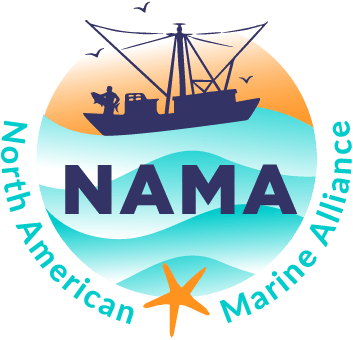Our History
NAMA was born in 1995 by a group of fishermen and fishing community advocates to explore an alternative management structure. They believed there had to be a better approach to protecting our oceans and manage marine resources. With Captain Craig Pendleton at the helm, NAMA set out on a decade-long pursuit of collaborative research and visioning toward realizing community and ecosystem based management. With the departure of Captain Pendleton in late 2007, the board of trustees set out to hire a new director and established new programs that drew their strength from the strong foundation already laid.
How We Work
Small and medium scale community-based fishermen bring high value to to marine ecosystems, coastal communities, working waterfronts, local and regional economies, and our food systems. They must be the leading voice in finding solutions that support new approaches to managing fisheries and seafood markets.
Our Values & Vision
Our values and vision are a consistent reminder of where we're headed. Our values establish a foundation for our work that help guide us on our journey toward our vision.
